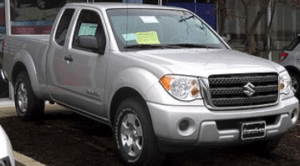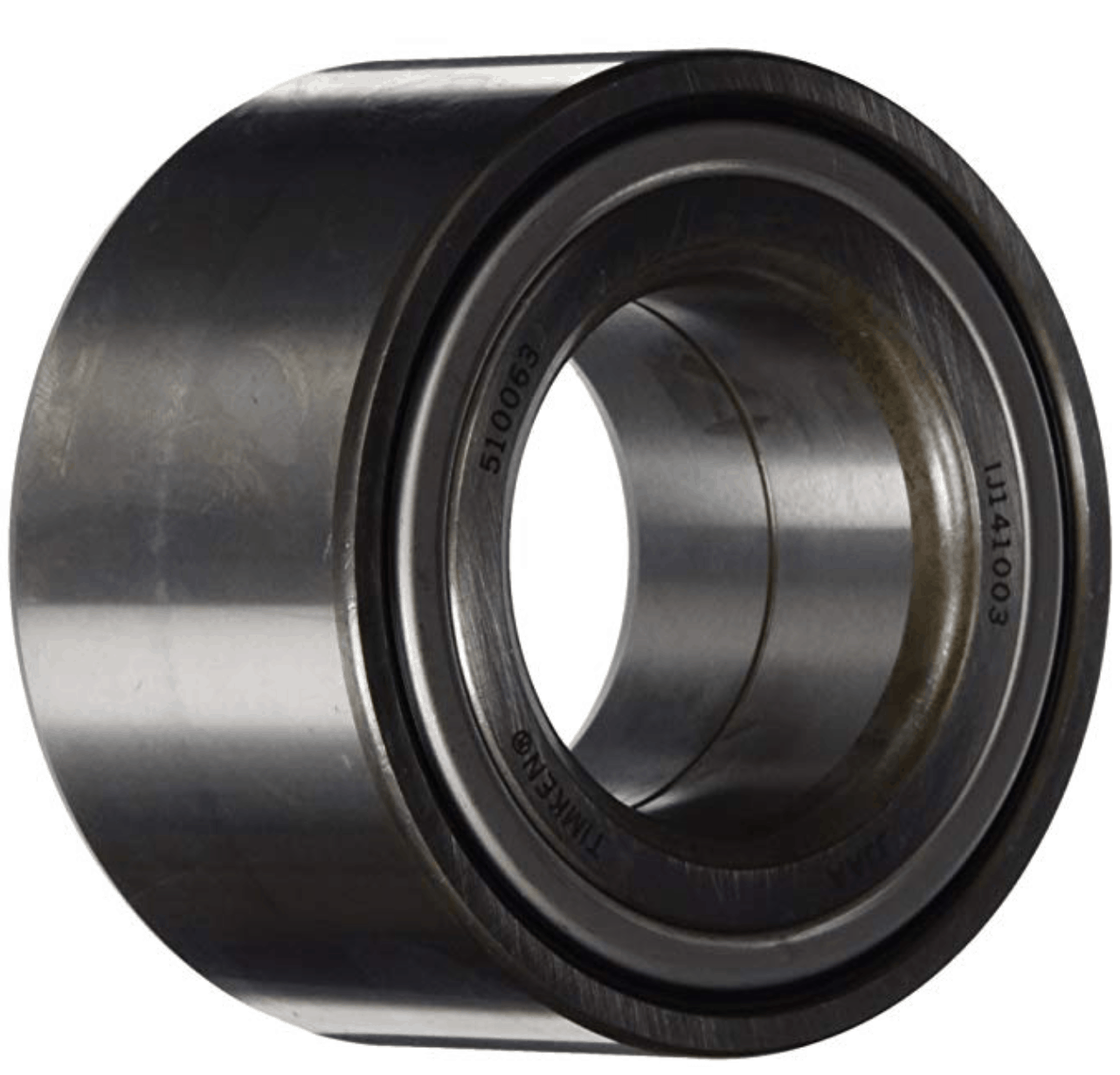If your Suzuki Equator is making a high pitched noise or hum, it could be a sign of a bad wheel bearing. There are several different vehicular components that can make a squeal or hum. That’s why it is important to know the other warning signs of a bad bearing before just going in and replacing it.
If you do have a bad bearing, replacing it is important. A bad wheel bearing can put stress on other components and they can begin to fail. It’ll also cause the tires to wear unevenly (usually on the inside).
Suzuki Equator Wheel Bearing Noises
Any noise from a vehicle is bad news. The question is whether or not that noise is wheel bearings or something else.
When your brakes have worn really far they can start to make a squeaking sound. It’s basically them begging to be replaced. If your brakes have worn to the point that they are grinding, you’ll feel a miserable grind when you hit them.
Most of the time, there’ll still be a light grind even when you aren’t braking. See Suzuki Equator brakes grinding for more info if you think this may be the problem.
Tires that are misaligned and have been allowed to wear unevenly can also cause a noise that is very similar to wheel bearing noise as well. So be cautious of that.
Equator Bad Wheel Bearing Symptoms
Noises– The most consistent sound that a bad wheel bearing is going to make is a low pitched grinding sound. This noise should be coming from the wheel or tire area.
Extra Play– Does your Equator’s steering feel as it should? If you have a bad wheel bearing, it could feel different. As the bearing wears down, it will allow the tire to move in directions it never was meant to. This effectively changes the wheel alignment repeatedly as you turn, accelerate, and brake.
Worse When Turning– Wheel bearing noise will often get worse when you turn. This is particularly true when it’s the front bearings that have gone bad.
Louder With Speed– Typically, bad wheel bearing noise will increase as you increase your Equator’s speed.
Suzuki Equator Bad Wheel Bearing Diagnosis
Test Drive– The best way to diagnose bearing noise in your Equator is to take it for a drive. You’ll be looking to hear the hum increase as the speed picks up.
Jack and Wiggle– With your Equator on jack stands, you’ll want to look and see if the wheel is wiggling at the bearing. If it is, that’s proof positive that you need a new wheel bearing. If it does not wiggle, that does not automatically mean the wheel bearing is good.
You would also want to turn the tire and see if there is an audible noise coming from the bearing. I’ve put a fantastic YouTube video on this from ChrisFix below. He does all of this. Check it out.
Conclusion
It is not recommended to drive your Suzuki Equator on a bad wheel bearing. They are dangerous. As they go bad they create heat. This heat can eventually cause the tire to lock up while going down the road.
Replacing a wheel bearing is not that expensive, even if you take it in to a shop. Good luck diagnosing your Equator. If there is anything you would like to add, please feel free to leave a comment below. Good luck!


